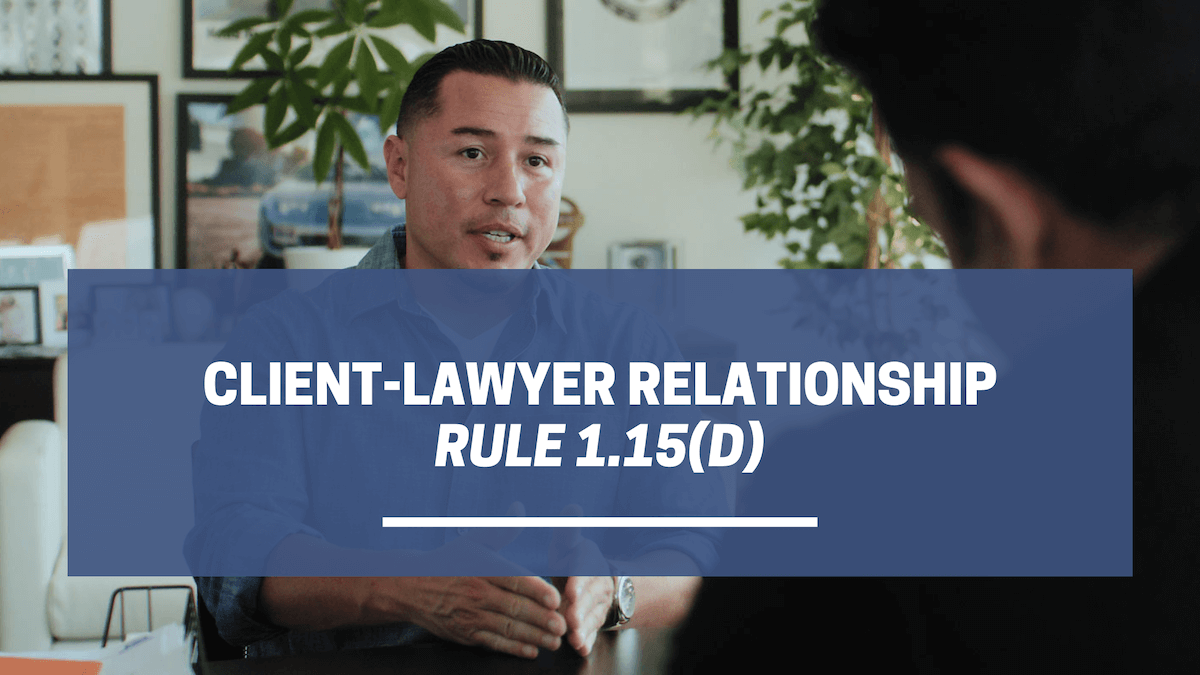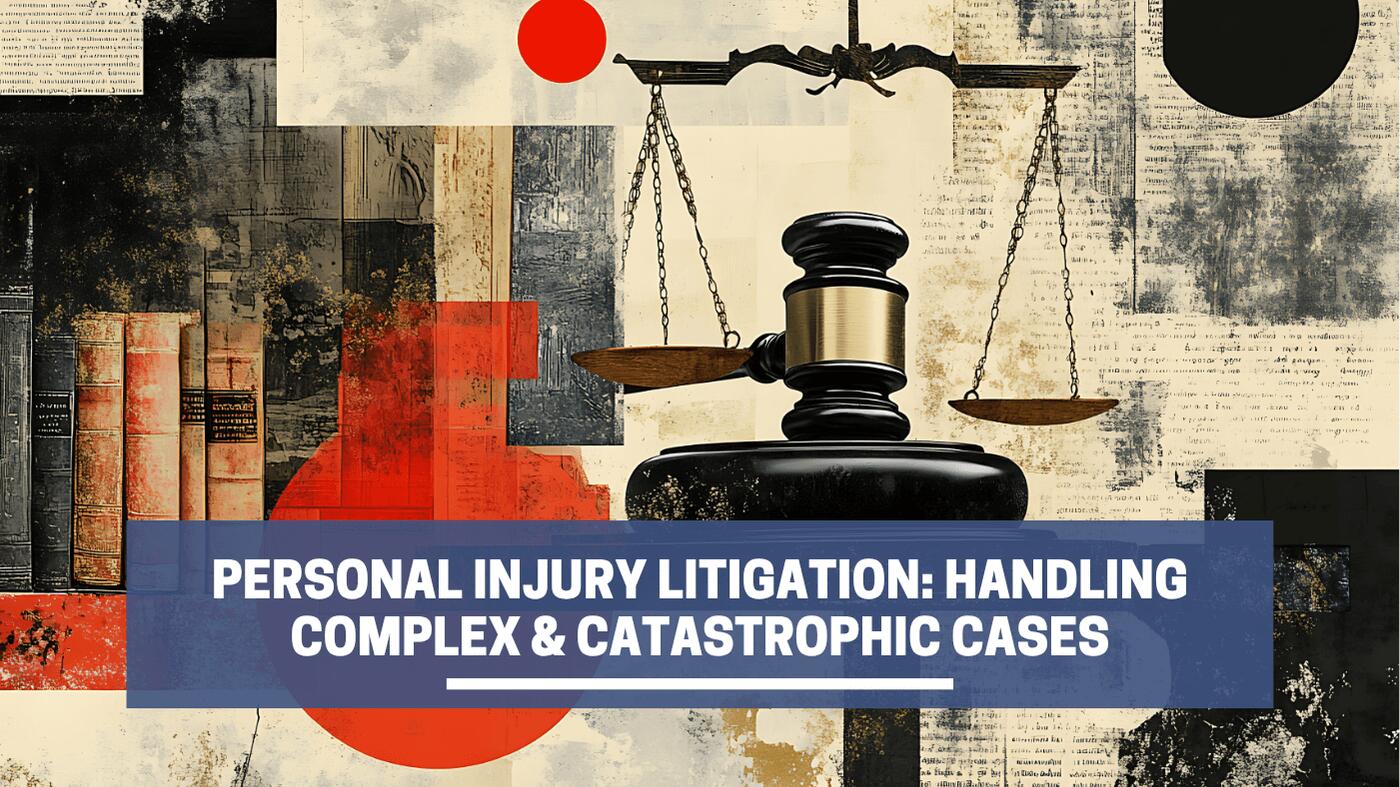The California State Bar requires attorneys to follow ethical guidelines during settlement negotiations. These ethical rules are in place to ensure your attorney represents your legal interests, delivers your money, and avoids disciplinary action.
If you have recently settled a civil case and believe that your attorney is mishandling your settlement money, you are not alone. Many clients don’t receive their total settlement due to their lawyers’ misconduct by not properly allocating expenses and providing an itemized list of costs.
As of September 2022, close to $2.4 million was paid by the California State Bar security fund to misconduct victims. In 2021, $5.66 million was reimbursed to 291 victims.
As a personal injury victim, being aware of your attorney’s financial obligations to you and what to do if they misappropriate your settlement funds can help you avoid losing your compensation.
Your Attorney’s Ethical Obligations During Settlement Negotiations
You and your lawyer must work together to discuss settlement offers and protect your interests in a personal injury case. However, you are the final decision maker on all matters related to the settlement. Your lawyer must consult with you throughout the legal process, including distributing your settlement money.
The California State Bar publishes the Rules of Professional Conduct for all lawyers to maintain during their legal representation with clients. The following rules should guide your lawyer’s conduct during settlement negotiations:
Inform You All Settlement Offers When There is a “Significant Development”
Your lawyer must inform you of all terms and conditions of a plea bargain or settlement offer in all matters under California State Bar’s Rule of Professional Conduct Rule 1.4.1. If a settlement offer is made in your case, your lawyer must communicate it to you.
Lawyers won’t face disciplinary action from the California State Board for failing to mention insignificant or irrelevant information. What constitutes a significant development depends on the specific facts and circumstances of the case; however, under 1.4.1, significant developments can refer to written or oral settlement offers.
Communicate the Client’s Representation Objectives
California Rule 1.4 requires lawyers to communicate with their clients about the best way to achieve the client’s desired outcome in a legal matter. Your lawyer should work with you to develop a plan or strategy to help you reach your settlement goals.
Although your objectives may change, your lawyer must maintain ongoing communication with you throughout their legal representation. For example, if you want to keep parts of your settlement tax-free, your attorney should help you seek tax-free damages, such as non-economic damages, to help reduce your tax liability.
Abide by a Client’s Decision on Whether to Settle a Matter
According to California Rule 1.2, a client determines the purposes of legal representation within the limits of the law and the lawyer’s professional responsibilities. This rule includes lawyers abiding by your decisions on settling your case. Clients are the only ones who can decide whether to accept or reject settlement offers.
For instance, your lawyer can help you determine your legal options if your insurance company refuses to work with you on your motorcycle accident settlement. You can go forward with filing a claim in court and or continue to negotiate a settlement in medication rather than filing a lawsuit.
Disclosure of All Itemization Costs From the Case
California Rule 1.15, which covers the safekeeping of client funds and property, resulted from the case of former trial attorney Tom Girardi. Girardi received over 205 complaints about mishandling settlement money and not responding to clients.
Following the Girardi case, California enacted Rule 1.15, which requires attorneys to keep client funds, securities, and other valuable property separate from personal and business accounts. They must deliver funds and property promptly to the clients once they receive them.
After closing their client’s case, lawyers must preserve accurate records of all client property transactions, including deposits, withdrawals, and transfers, for five years.
California attorneys can only use their clients’ funds to pay fees or expenses if authorized. The client must receive payment on any interest on their funds unless a lawyer agrees.
What to Do if You Didn’t Receive Your Full Settlement
Victims of lawyer misconduct can take action if they believe they didn’t receive their full settlement. Steps you can take include discussing your concerns with your attorney or sending your complaint to the California State Bar.
Express Your Concerns With Your Attorney
Your attorney should contact you throughout the settlement process and give you an estimate of when you will receive your funds after you’ve reached an agreement with the insurer. If your attorney stops communicating, or it has been several months since signing the agreement, contact your attorney to discuss your concerns.
A reliable attorney should meet and discuss issues with you, including how you can receive your settlement. Keep a record of all emails and phone calls you make to your lawyer. Consider sending a letter outlining your concerns and proposing a face-to-face meeting within a specified time frame. It is advisable to send this letter with the return receipt requested so you have proof of delivery to your attorney’s office.
If your attorney fails to respond to your communication, you can use your records and letters as evidence in your complaint to the California State Bar.
Find a Pro-Bono Lawyer
You may also seek the assistance of a pro-bono lawyer to help you with your case. A pro-bono lawyer can offer legal advice on your settlement issue, such as explaining your legal rights and options. They can help you understand your legal options and the best way to proceed with your case, including submitting a complaint with the California State Bar.
The Legal Aid Association of California provides a resource to find local legal aid associations near you to help you with your case. These organizations offer free or low-cost legal guidance and representation to help you understand if they can help you with your concerns about your settlement.
File a Complaint with the California State Bar
If you are taking your grievance against an attorney to the California State Bar, you must complete an attorney complaint form. You must include the attorney’s contact information and details of whether your case went to court. This letter must include all relevant documents from your relationship with the attorney, such as the engagement letter, the written fee agreement, and the communication records.
Apply for the Client Security Fund
You can apply for the State Bar’s Client Security Fund if a lawyer receives your settlement but takes the funds from you. People who have lost money or property because of the dishonesty of a California lawyer can receive compensation from the fund up to $100,000. However, the fund doesn’t pay additional costs such as interest, expenses, or damages due to the lawyer’s negligence, malpractice, or incompetence.
How Does the State Bar Handle Client Complaints?
The State Bar will let you know when they receive your complaint. An attorney with the State Bar will review your complaint to determine whether your documents and description of the events demonstrate your lawyer’s ethical violation. The State Bar will open an investigation if the attorney finds your complaint establishes a violation.
If the State Bar of California files charges against a lawyer upon concluding their investigation, the case will go before an independent State Bar Court, where a judge might dismiss or reprove the case. The judge could recommend suspension or disbarment. The California Supreme Court makes all final decisions regarding disciplinary cases, such as suspensions and disbarments.
Protect Your Rights if Your Lawyer Infringes on Your Ethical Rights
You expect your attorney to be as transparent as possible and provide legal guidance on all matters, including settling your case for fair compensation. The California State Bar allows you to file a complaint against your lawyer if their unethical behavior prevents you from receiving your total settlement.
By providing evidence of your lawyer’s unethical conduct throughout your relationship with them to the State Bar, you can obtain justice for your case.











